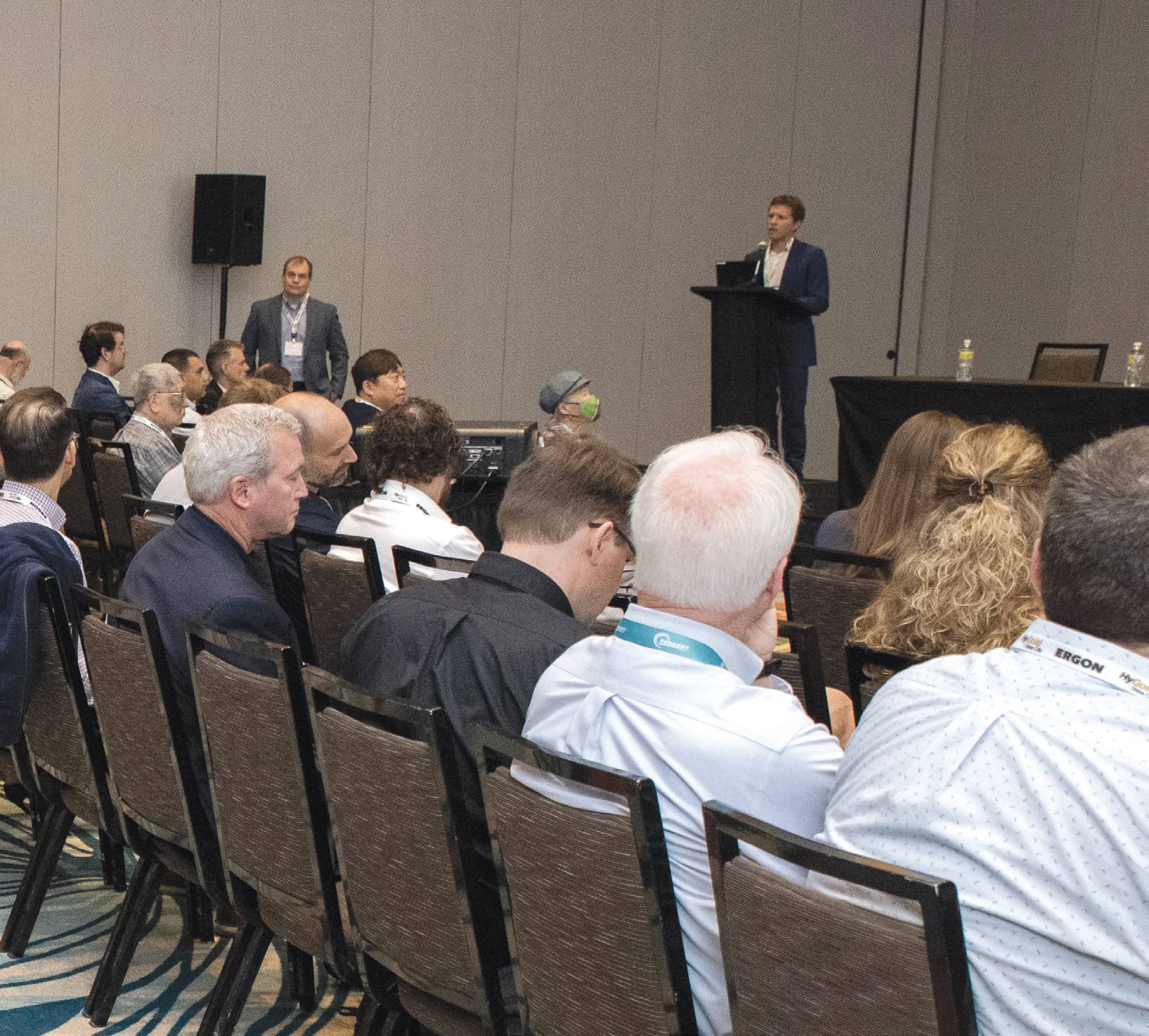STLE’s New Year’s resolution
By Edward P. Salek, CAE, Executive Director | TLT Headquarters Report January 2023
As we begin 2023, STLE has an increasingly vital role to play for the companies and individuals involved in the tribology and lubrication business.

As we begin 2023, STLE has an increasingly vital role to play for the companies and individuals involved in the tribology and lubrication business.
That’s not just my opinion, but the opinion of hundreds of STLE members and nonmembers. They participated in a research project late last year that asked them to evaluate STLE and the value of services that are provided.
Nearly 300 STLE members and nonmembers, primarily in North America, responded to the electronic survey during late September and early October of 2022. Respondents were evenly distributed in terms of membership tenure, with 36% holding membership for five or less years, 32% six to 15 years and 30% 16 or more years.
One indicator of STLE’s stature in the industry is that employers play a key role in building awareness for the organization. The largest concentration of member respondents (48%) and nonmember respondents (35%) reported that they first learned about STLE through their employer. Approximately two-thirds of all member respondents have their STLE membership dues paid or reimbursed by their employer.
Why do corporate member partners value STLE? According to the study, it’s because we provide access to industry-specific educational programs and resources that are critical to the ability to advance one’s career. Regardless of how long respondents had been in the field, these were the top reasons why members join STLE.
STLE’s performance in this important member need is excellent. Three-quarters of respondents are satisfied or extremely satisfied with STLE educational content and programming.
Many survey participants stressed the technical quality and professionalism of training material. They rated the top five topic areas of interest as base oils, additives, lubrication fundamentals, lubricant applications and grease technology. This was true for formulators, scientists and professionals in the metalworking and lubrication industries. One respondent said, “STLE is the ‘go-to’ source for meeting my educational and technical needs.”
A third key finding was that almost all STLE member respondents agree or strongly agree that STLE is committed to furthering the advancement of tribology and lubrication engineering. To accomplish this, they see the need to confront several challenges facing the industry.
Changes in technology continues to be the top challenge, cited by 60% of respondents. E-mobility is at the heart of this evolving tribology landscape, and there is concern that not enough individuals are being trained or educated in this technology. Compounding the situation is continuing difficulty in attracting young talent to the field. That was a concern for 43% of those who answered the survey.
Survey respondents felt advocacy for the profession is needed, due to a general lack of awareness about the importance of tribology and lubrication engineering. This is seen as contributing to the lack of trained professionals entering the field and to limited recognition by industry of the bottom-line value of sound tribological engineering and design practices.
Survey results are being used by the STLE Board of Directors and senior staff to craft a revised STLE Strategic Plan for 2023-2026. Based on this feedback, it’s clear that there will be continued emphasis on STLE’s role as an educator and an advocate for the profession. Approval and release of the final document is expected at the 2023 STLE Annual Meeting & Exhibition, May 21-25, in Long Beach, Calif. (USA).
You can reach Certified Association Executive Ed Salek at esalek@stle.org.